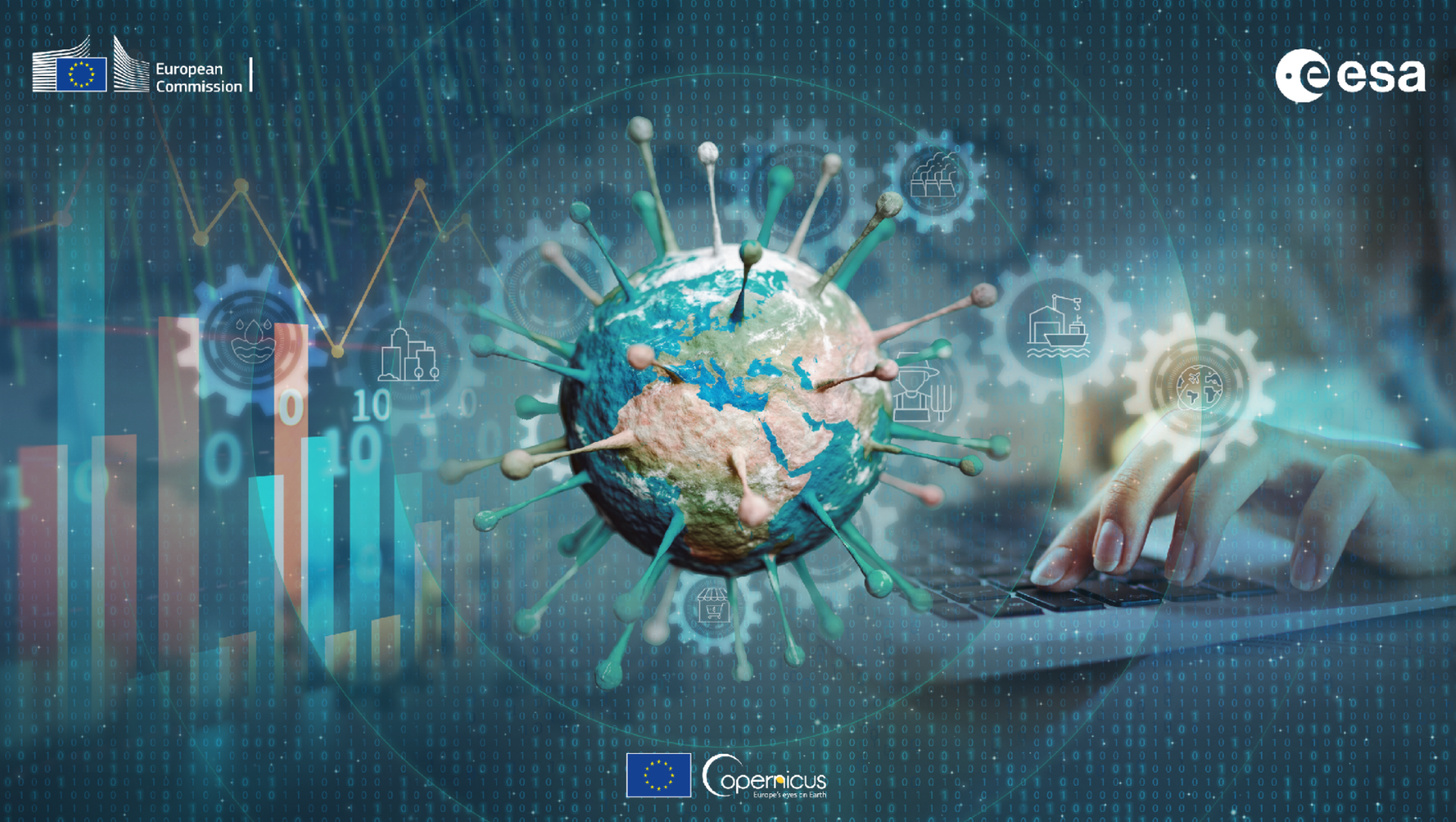Space in response to COVID-19
Do you have fresh ideas on how Earth observation data can contribute to monitoring the effects brought on by the COVID-19 pandemic? If so, ESA and the European Commission have launched a new series of monthly challenges asking for innovative solutions on how satellite data can be used to help better understand the effects of the coronavirus on society, economy and the environment.
In mid-2020, ESA, along with the European Commission, launched the ‘Rapid Action Coronavirus Earth observation’ dashboard in response to the COVID-19 pandemic. The platform showcases how satellite data can contribute to measuring some of the impacts of the coronavirus lockdown and monitor post-lockdown recovery.
The dashboard also features two ideas from an initial round of challenges held in 2020. The two winning ideas selected, truck and trade detection and the monitoring of air traffic, were fully integrated into the dashboard in late-2020.
Now, ESA and the European Commission have come together again to launch a new series of monthly challenges throughout 2021. Each challenge, published at the beginning of each month, will be based on a specific interdisciplinary theme focusing on how different components of the environment interact with pandemic-driven changes around the world.
The first challenge, launched yesterday, focuses on how the pandemic affects shipping traffic as well as related impacts on air and water quality. The general public are invited to propose, and develop, ways to characterise shipping vessel dynamics and their impacts on atmospheric parameters and ocean water quality information using Earth observation data, such as Copernicus Sentinel data.
ESA’s Patrick Griffiths commented, “'The Rapid Action Coronavirus Earth observation’ dashboard provides us with a unique opportunity to look at satellite data in an interdisciplinary context and perform more complex analyses to investigate the impacts of the pandemic across different sectors, allowing us to better understand how different components of the environment might interact and respond to the changes brought on by the pandemic.”
Yves-Louis Desnos, Head of Data Applications Division at ESA, added, “We are extremely excited to announce this new series of challenges and we are very much looking forward to receiving fresh ideas on how to make use of the wealth of data available to better understand the impact of the pandemic on environment and economy.”
Mauro Facchini, Head of Unit for Earth Observation at the European Commission’s Directorate-General Defence Industry and Space, added, “The Rapid Action Coronavirus Dashboard initiative and its challenges showcase how relevant Earth observation, including the Copernicus programme, is to help us address societal challenges, such as the current coronavirus pandemic. It is also an excellent example of our close cooperation between the European Commission and ESA.”
More information on the challenges and details on how to participate can be found on this page.












